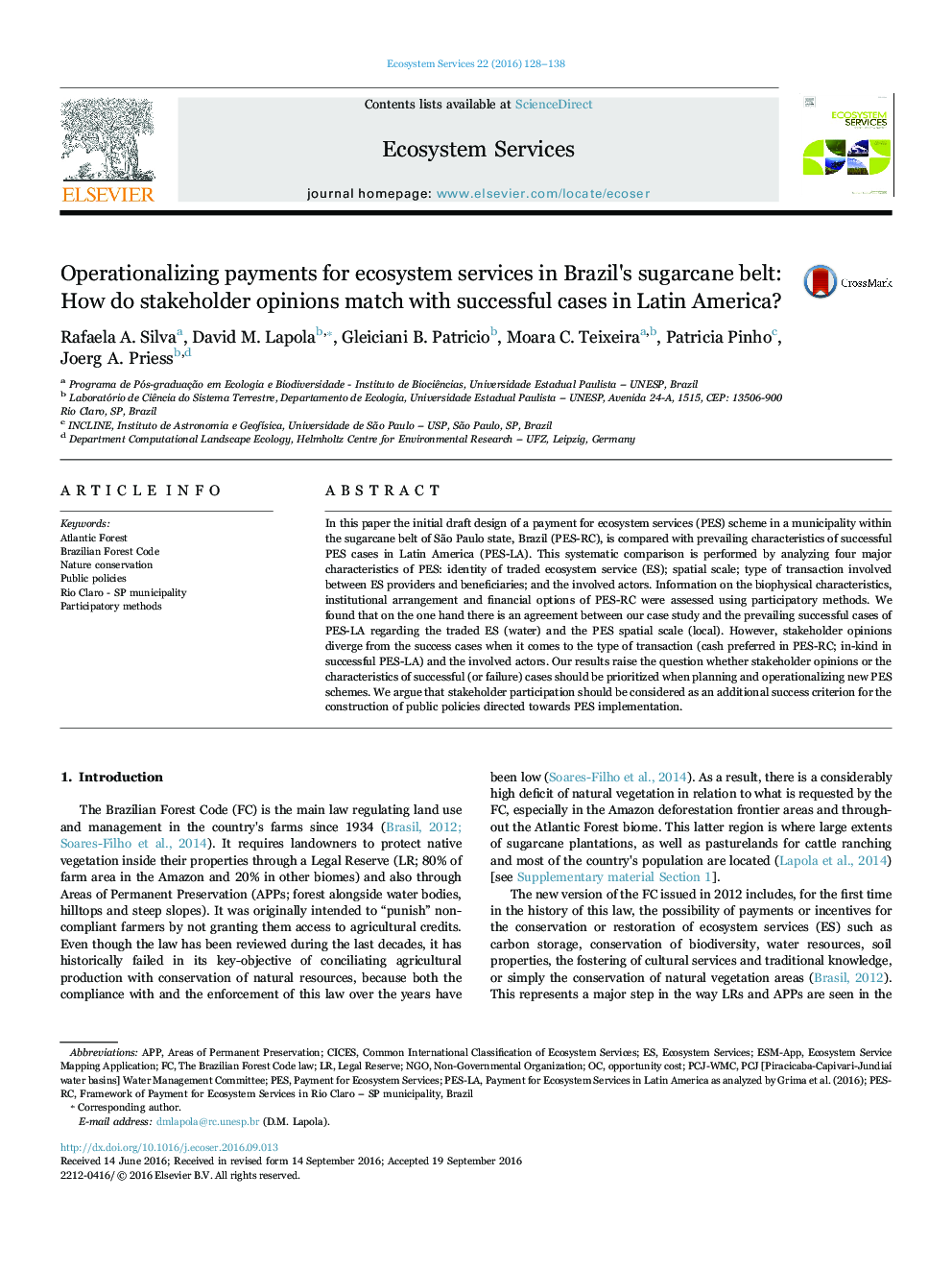| Article ID | Journal | Published Year | Pages | File Type |
|---|---|---|---|---|
| 4761646 | Ecosystem Services | 2016 | 11 Pages |
Abstract
In this paper the initial draft design of a payment for ecosystem services (PES) scheme in a municipality within the sugarcane belt of São Paulo state, Brazil (PES-RC), is compared with prevailing characteristics of successful PES cases in Latin America (PES-LA). This systematic comparison is performed by analyzing four major characteristics of PES: identity of traded ecosystem service (ES); spatial scale; type of transaction involved between ES providers and beneficiaries; and the involved actors. Information on the biophysical characteristics, institutional arrangement and financial options of PES-RC were assessed using participatory methods. We found that on the one hand there is an agreement between our case study and the prevailing successful cases of PES-LA regarding the traded ES (water) and the PES spatial scale (local). However, stakeholder opinions diverge from the success cases when it comes to the type of transaction (cash preferred in PES-RC; in-kind in successful PES-LA) and the involved actors. Our results raise the question whether stakeholder opinions or the characteristics of successful (or failure) cases should be prioritized when planning and operationalizing new PES schemes. We argue that stakeholder participation should be considered as an additional success criterion for the construction of public policies directed towards PES implementation.
Keywords
Related Topics
Life Sciences
Agricultural and Biological Sciences
Agricultural and Biological Sciences (General)
Authors
Rafaela A. Silva, David M. Lapola, Gleiciani B. Patricio, Moara C. Teixeira, Patricia Pinho, Joerg A. Priess,
